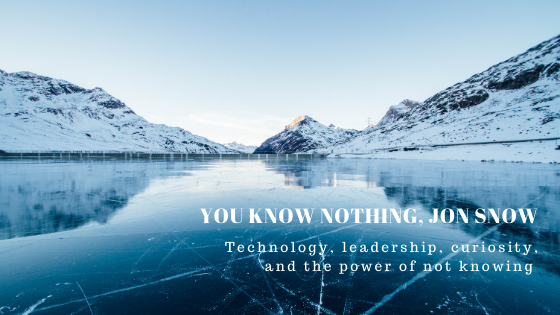|
I first saw a computer when I arrived in the United States in 1992. My husband Mel and I had just gotten married in Rio de Janeiro, and I came straight to Bowling Green, Ohio, a university town. In Brazil, I ran a small business with my sister; I was a literary agent. We had purchased two little electronic typewriters and owned a fax machine that felt like magic. I still remember the faxes arriving from Japan at 4 in the morning, the buzzing of the paper in my bedroom.
In those days, the word "computer "meant the gigantic machines my brothers talked about; both of them had studied systems engineering. My brothers brought home piles of paper with little holes on each side. I wasn't particularly intrigued; the computers seemed too far away from my world to matter. Computers started "mattering "when my sister and I were asked to find Brazilian publishers for a series of "Norton "books. I had no idea what Norton meant. We scheduled a meeting with our client to understand what on earth we were about to sell. That was the first time I heard the word "Windows." What is "Windows"? I asked our client. He said it was an environment. He might as well have described a planet in a black hole. Luckily, my ignorance didn't matter as we quickly found a publisher for the Norton books. Someone out there knew what I did not know. By the time I arrived in the US, ordinary people - academicians, students, business people - already owned personal computers. Mel and I started our masters, and his brother loaned us a little laptop. I purchased a set of k7 tapes that taught me how to use Wordperfect 5.1 and still remember the excitement of pressing keys and seeing letters become bold or italic. Finally, I had figured out what Windows meant. Mel and I introduced our baby daughter to computers as soon as we could. We owned a Tandy, a bulky machine with a relatively small screen. One computer for the entire household, something that these days would feel unthinkable (between the three of us, we own five computers). We purchased a series of educational CD-ROMs; one of them was for toddlers. Maggie loved the game, she would click on buttons, and little chicks jumped while other animals made noises. She grew up playing with our Tandy and typing on her Leapfrog book to hear words and music. Her new world was filled with magic. I often hear the old saying, "you can't teach old dogs new tricks," when discussing technology and generations at work. I smile because older dogs learn tricks all the time. They just need to be motivated. And, as much as I love my furry family members, I'm not a dog. Besides, people my age, who did not grow up with computers, were still in their late 20s or early 30s when the revolution took hold; when k7 tapes taught us how to use WordPerfect 5.1. If my 89-year-old mother can work with her iPad, communicate via WhatsApp on her iPhone, and write a little memoir book using Word, I can learn new tricks. These days, my colleagues at work call me the Tech Toys Queen. You need free or relatively cheap software to do something in communications, training, teaching, or time management? Ask Cris. My students laugh because if they ask for one tool, I share ten or more. I have an Excel spreadsheet with so many tools I need to find a fresh way to keep them straight. There must be a tool for that. How did I become the technology queen starting from an electronic typewriter, WordPerfect 5.1 k7 tapes, and Tandy computers? What does all that have to do with leadership? Leadership, Curiosity, and the Power of Not Knowing Leaders are brave. You can't lead if you are not courageous enough to jump into the mist and see what's there. You can't lead if you always need someone to teach you. Few people have crossed the misty borders; those who have may be too busy to guide you. Leaders brave the mist and train their eyes to see in the darkness. Leaders are curious. They love the thrill of the mysteries beyond the mist. Leaders feel exhilarated when discovering a new Windows environment in a machine they had never seen before; they seek new toys when they have barely figured out how to use the old ones. Leaders are eternal Christmas toy grabbers, opening package after package. Leaders are passionate. You can't bring people into your world if you say, "Hey, there's work to do, it's boring as heck, but follow me anyway for another day of drudgery." Instead, your eyes shine, and you tell people you discovered something magical, and you ask them to go with you - not follow you. You do not invite others to see your magic; you ask them to uncover their own. Leaders accept failure. You can't fear failure and conquer new worlds at the same time. New worlds have new rules, new vocabulary (What is Norton? What is Windows?), different cultural connections. New worlds are challenging at first; mistakes are inevitable. If you want to be a leader, you must tolerate your fallibility and build resilience. The image of a leader who "messes up "fascinates me. After all, when we think of leaders, we imagine people who always get things right. We see successful people who built technology empires. Leaders surely can't fail. But leaders fail repeatedly; the moment they stop failing is also the moment they stop trying. Finally, leaders accept not knowing. When leaders stop, the mist dissipates, and the world is now clear to everyone else. If you want to be a leader, you must become comfortable with ignorance. A perfect example of the leader who "does not know "comes from my favorite TV series, HBO's The Game of Thrones. In the Game of Thrones' second season, the show's main hero, Jon Snow, goes beyond the great Ice Wall that protects the seven kingdoms. Once there, he meets the "wildling "(a name given to the people who live beyond the wall) Ygritte. Ygritte laughs at Jon's ignorance and constantly says the famous words, "You know nothing, Jon Snow." Jon Snow knew nothing as he faced a new frozen territory where there were giants and terrible zombie-producing creatures. Jon Snow knew nothing and would still know nothing if he hadn't gone past the wall. As Jon walked with Ygritte, he was clumsy and made mistakes. He didn't know how to do things that came quickly to Ygritte and her fellow wildllings. And yet, Jon Snow seemed eager to brave this wild world of ignorance. Leaders, like Jon Snow, are comfortable with always knowing nothing.
0 Comments
Leave a Reply. |
About the Author
Dr. Cris Wildermuth is an Assistant Professor at Drake University, where she coordinates and teaches at the Master of Science in Leadership Development. Archives
January 2021
Categories
All
|



 RSS Feed
RSS Feed